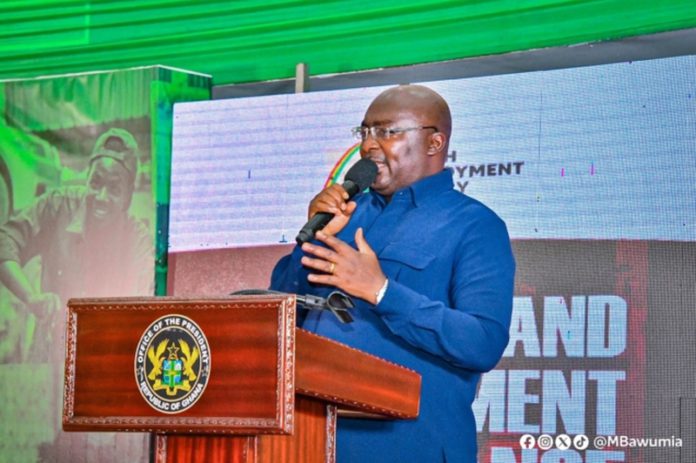Member of Parliament for the Akyem Abuakwa South constituency, Samuel Atta Akyea, says it would be unjust to attribute the country’s economic challenges solely to Vice President Dr. Mahamudu Bawumia.
Mr Atta Akyea pointed out that Dr. Bawumia faced significant limitations in his role as Vice President and couldn’t implement his ideas to address the economic downturn.
Speaking on Citi TV on Tuesday, January 16, the former Works and Housing Minister stated that the ultimate decisions on government policies were made by the President and not Dr. Bawumia.
He defended Dr. Bawumia as a distinguished individual with the resilience to serve the nation effectively.
He expressed confidence that Dr. Bawumia, if elected president on December 7, would implement his ideas for the betterment of Ghanaians.
“This is the first time Ghana is going to have a president who is an economist, Dr. Mahamudu Bawumia. If the problem of Ghana now and people are talking about its seriousness, I agree to a reasonable extent that the economy is not in its best form. When you have a toothache, do you give it to a carpenter or a dentist? Ghana will be in a safer pair of hands when we bring Dr. Bawumia.”
“Ghana is going to get a man with shock absorbers, the finest gentleman, to help us solve a major problem facing us, the economy. He was in a very serious adversary role, which is what people don’t want to see. It’s cruel and vile propaganda for everybody to say that let’s place all the economic woes of Akufo-Addo on Dr. Bawumia. It’s unkind,” he said.
Ghana has been grappling with an ongoing economic downturn, leading the government to seek assistance from the International Monetary Fund for a bailout.
Dr. Bawumia, as the head of the Economic Management Team, has faced criticism for the economic challenges.
Nonetheless, Mr. Atta Akyea contends that assigning blame to Dr. Bawumia is unjustified and should be ceased.
Eduwatch condemns ‘inhuman treatment’ of UG student for allegedly being ‘gay’
Govt must partner private developers to end accommodation crisis in tertiary…


